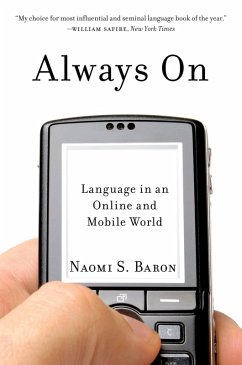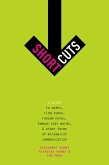In
Always On, Naomi S. Baron reveals that online and mobile technologies--including instant messaging, cell phones, multitasking, Facebook, blogs, and wikis--are profoundly influencing how we read and write, speak and listen, but not in the ways we might suppose. Baron draws on a decade of research to provide an eye-opening look at language in an online and mobile world. She reveals for instance that email, IM, and text messaging have had surprisingly little impact on student writing. Electronic media has magnified the laid-back "whatever" attitude toward formal writing that young people everywhere have embraced, but it is not a cause of it. A more troubling trend, according to Baron, is the myriad ways in which we block incoming IMs, camouflage ourselves on Facebook, and use ring tones or caller ID to screen incoming calls on our mobile phones. Our ability to decide who to talk to, she argues, is likely to be among the most lasting influences that information technology has upon the ways we communicate with one another. Moreover, as more and more people are "always on" one technology or another--whether communicating, working, or just surfing the web or playing games--we have to ask what kind of people do we become, as individuals and as family members or friends, if the relationships we form must increasingly compete for our attention with digital media? Our 300-year-old written culture is on the verge of redefinition, Baron notes. It's up to us to determine how and when we use language technologies, and to weigh the personal and social benefits--and costs--of being "always on." This engaging and lucidly-crafted book gives us the tools for taking on these challenges.
Dieser Download kann aus rechtlichen Gründen nur mit Rechnungsadresse in A, B, BG, CY, CZ, D, DK, EW, E, FIN, F, GR, HR, H, IRL, I, LT, L, LR, M, NL, PL, P, R, S, SLO, SK ausgeliefert werden.









